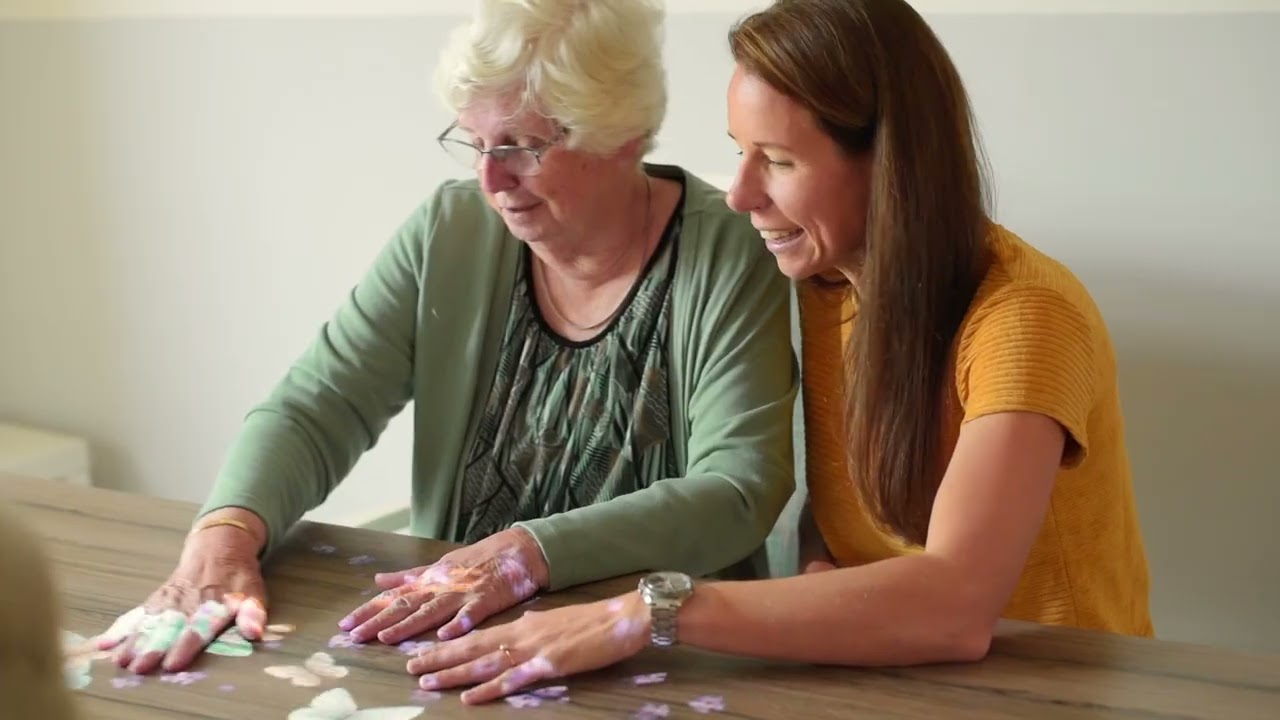Hester Anderiesen-Le Riche studied Industrial Design at TU Delft. During her subsequent PhD research, she delved into the question of how elderly people with dementia can be encouraged to engage in physical activity and social interaction. Her answer was the Tovertafel: interactive light projections that can be projected on the table or on the ground and that respond to hand or arm movements of the users.
This groundbreaking form of gaming technology offers people living with dementia a form of physical, cognitive and social stimulation, creating moments of fun and happiness. The Tovertafel has been proven effective in breaking through apathy - one of the most common symptoms of dementia - and increasing the quality of life in people with moderate to severe dementia.
Years of research are the basis of the success of the Tover games. During her PhD, Le Riche worked closely with professor of neuropsychologist Erik Scherder from the Vrije Universiteit Amsterdam and professor of physical ergonomics Richard Goossens from TU Delft. Goossens: “During her PhD research, Hester became seriously interested in game design. By combining her insight into human behavior with field research in nursing homes, she was able to scientifically substantiate the positive impact of the Tovertafel.” Research is still central to the company. All games are developed via co-design methods, in close collaboration with the target group and their (care) environment. Furthermore, Le Riche continues to collaborate with universities and research organizations in most countries where it sells its products, where the effects on healthcare professionals are also examined. The Magic Table appears to play a role in reducing work pressure and increasing job satisfaction.
Delft entrepreneurship and expansion of the field of work
Tover is also a good example of Delft entrepreneurship, in which Le Riche combines her role as designer, researcher and entrepreneur. She developed the first prototype of the Tovertafel in 2011 as part of an interdisciplinary research project. She previously worked with game developer Monobanda and healthcare organization Careyn. The first Tovertafel was put into use in March 2015. It earned the company the title of 'most innovative startup in the Netherlands'. Tover's field of work has now expanded to seniors in the early stages of dementia, adults with an intellectual disability and children with additional support needs. And the development continues. In a new online environment, customers can now personalize and enrich the Tovertafel experience for foster home residents.
For the full article click here




